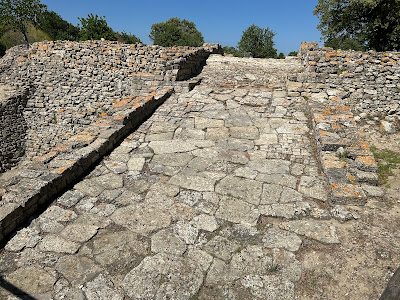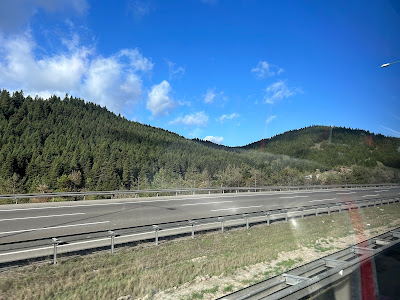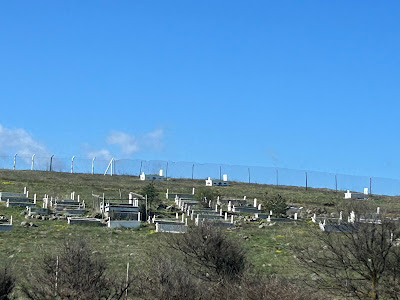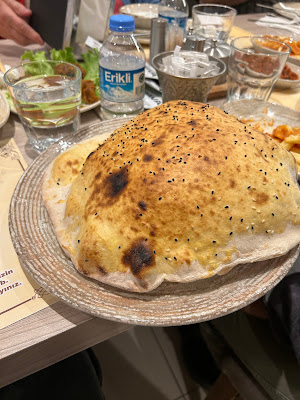I received a great deal to think about during my Iaijutsu training last month in Japan - not just on my technique, but about Life.
Yes, about Life in general as well but specifically about my life. No, I cannot talk about a lot of it (what happens in the dojo stays in the dojo).
The short version is that I tend to be far more focused on myself and my advancement (whatever that actually means) instead of adapting myself to, preserving, and furthering the art.
This in turn sent me down a whole series of considerations and pathways, mostly dealing with myself and my focus on me, the outcome of which was I listed a set of things I needed to change in my thinking:
1) "I am the author of my life" versus "God is the author of my life."
2) "I am the saviour of my life (via my own efforts)" versus "Christ is the saviour of my life".
3) "I am the hero in the life of others" versus "I am a servant in the life of others".
If it is not apparent, I was confronted in a very meaningful way at that time.
Fast forward to two weeks ago, when I found myself in a different church than I had been attending for reasons I was not sure of, other than I needed to go there. Upon entering the space, I wanted - really needed - to hear something from God. It seemed a little presumptuous of me to say "God, reveal Yourself" as He is already there. Instead, I fell back on a phrase that was used by the Desert Fathers of the 4th-6th centuries A.D. when they visited one a teacher or someone they considered holy: "Give me a word".
Just like that, the words came back "Deny yourself, take up your cross, and follow Me".
It is stunning enough when you finding something in God's word that speaks to you, personally, in that moment; it is even more so when you "hear" (I can use no other word, although there was no sound) something that is a definitive answer to a question that was asked.
As I drove home that day, I realized that set of words sounded familiar, and not just because I knew the passage where they came from. Sure enough, there embedded in my notes from training and my deep reflections where the above statements had been written down, was the phrase "Deny yourself, take up your cross, and follow Me".
---
The verse is one that appears in the Synoptic Gospels (Matthew, Mark, and Luke). I quote the verse from Luke here, as it has the most clarity to me:
"Then He (Jesus) said to them all, 'If anyone desires to come after Me, let him deny himself, take up his cross daily, and follow Me. For whoever desires to save his life will lose it, but whoever loses his life for My sake will find it. For what profit is it to a man if he gains the whole world, and is himself destroyed or lost?'" - Luke 9: 23-25, NKJV (also in Matthew 16:28-17:9 and Mark 8:34-28)
---
And so, I find myself wrestling with the concept of denying myself.
What does that fully mean? I am struggling with this. There are certainly very base level practices, practiced by ascetics and Christians throughout the ages: levels of fasting and other physical practices meant to tame the body - and prayer, always prayer. Giving in the form of charity, of course: C.S. Lewis noted that if our charities did not somehow pinch not just our luxuries but our basics, we likely are not charitable enough. And a litany of everyday practices meant to get our eyes off ourselves: humbling of ourselves in the service of others, for example (humility was a matter of consideration this year for more than one reason, apparently).
Still, I struggle. Simple denial of something like food for fasting seems painfully basic and off the mark, for example - although I am pretty sure there is also a simple part of me that does not want to do even that. But those sorts of physical restrictions, though likely beneficial, do not seem to be the core of what was asked of me.
Do I think something like what has become a fast of sorts from social media and indeed any media is part of it? I do, although this seems of secondary or even tertiary import except that it pushes me towards having more time and silence in my life.
And so, I continue to fumble my way forward in the dark.
But this one thing I know: Not once, but twice this year the very specific command "Deny yourself, take up your cross, and follow Me" has come to the direct forefront of my conscious thought. Surely this is for a reason.
The question is, how well am I doing that very thing.

















































